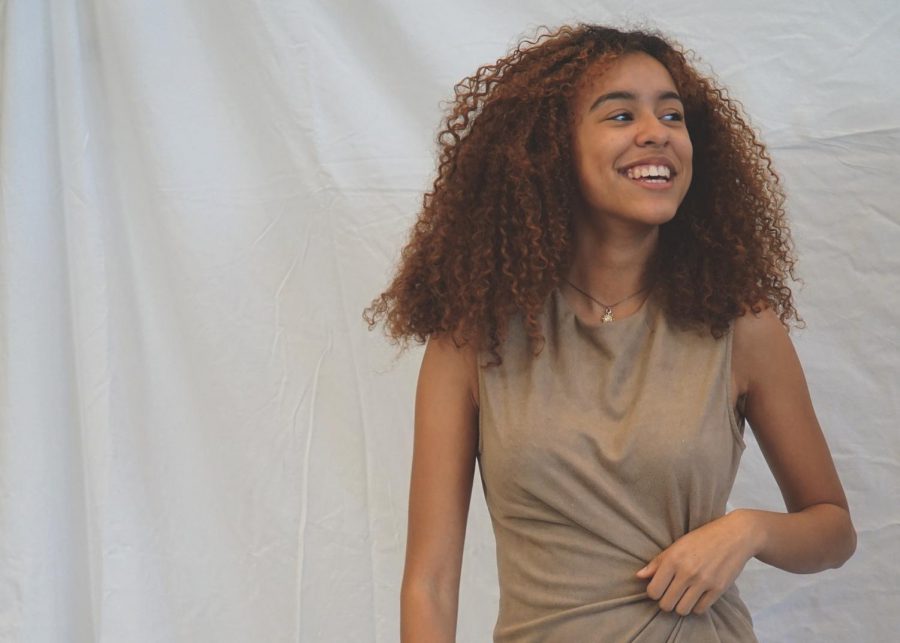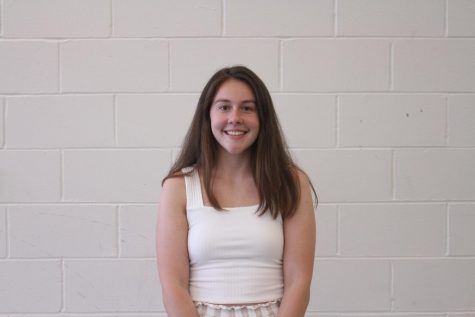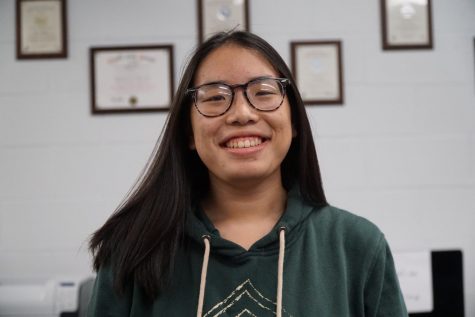Fashion world pushes for realistic beauty standards with models of all sizes, shapes and backgrounds
Senior Sydney Karlin of Matawan struts down the runway at the 2018 CHS Fashion Show.
September 14, 2018
Thanks to a recent rise in inclusivity, unrealistic expectations in the fashion industry may be a thing of the past.
Today, identical models do not fill runways as they have before. Now more than ever, there has been a push for diversity that the fashion world lacked for years.
Robin Givhan, a fashion critic, noted a difference in the diversity of today’s runway models in a piece for the Washington Post.
“The industry looks significantly different from the days of clone-like waifs, golden-haired muses and magazine mastheads that read like the Social Register,” Givhan wrote.
One brand that demonstrates this all-embracing mindset is American Eagle. Their most recent campaign for their Aerie line includes models “who have disabilities, chronic illnesses, scars, stretch marks and are cancer survivors,” according to People.
Consumers tend to gravitate towards more open-minded labels like American Eagle because of their broad spectrum of models.
Junior Abby Tellechea of Monmouth Beach prefers brands that accept all models over ones that do not.
“When I see brands that include all types of models, I find them relatable and real. The ones that have a specific image attached to them usually just seem unattainable and fake,” Tellechea said.
While many people support the diversity movement in the fashion industry, some, like modeling agency owner Nafisa Kaptownwala, consider it a passing trend.
“If these brands are only trying to capture a moment because it’s trendy, that doesn’t get to the root of the problem and it doesn’t facilitate social change,” Kaptownwala told Fashion Magazine.
Despite some hesitations about the endurance of the movement, it is obvious that times have changed for the world of fashion. But even with the progress the fashion industry has made in accepting all models, junior Emily Toro of Manalapan said that there is more that brands must do to make this movement truly diverse.
“I think more brands need to be inclusive. All life is diverse, so all brands should reflect that in their models, not just a few,” Toro said.






